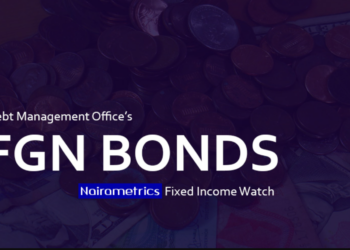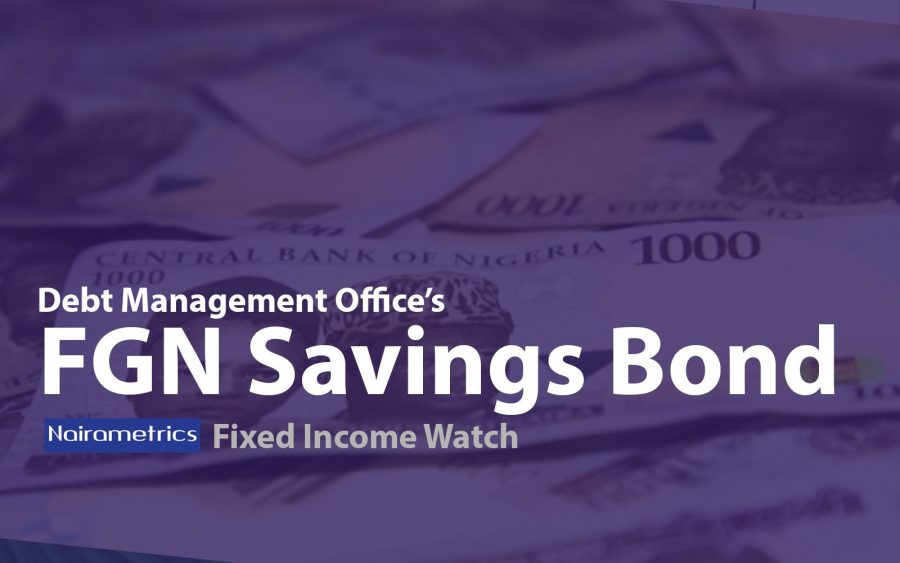Come Wednesday, July 24, 2019, the Debt Management Office (DMO), will on behalf of the Federal Government auction fresh bonds valued at N145 billion for subscription.
In a circular released to the public, the DMO revealed that the settlement date for the subscription has been scheduled for Friday, July 26, 2019.
[READ MORE: DMO’s first Eurobonds listed in tranches on FMDQ and NSE]
The bonds were offered at a 12.75% rate for N40 billion (5-year bond), 14.55% rate for N50 billion (10-year bond), and 14.80% rate for N55 billion (30-year bond).

How the bonds were offered: According to the DMO, the bonds were offered at N1,000 per unit, subject to a minimum subscription of N50,001,000, and in multiples of N1,000, thereafter.
What the bonds represent: While revealing that all FGN bonds qualify as liquid assets for liquidity ratio calculation for banks, the DMO said the bonds to be auctioned qualify as securities in which trustees can invest under the Trustee Investment Act.
According to the DMO, it also qualifies as Government securities within the meaning of Company Income Tax Act (“CITA”) and Personal Income Tax Act (“PITA”) for Tax Exemption for Pension Funds, amongst other investors.
[READ ALSO: FBNQuest appointed co-financial advisor to DMO]
Interested in buying? The DMO advised interested investors to contact the stockbroking firms it appointed as distribution agents.
Nairametrics however, understands that the stockbroking firms include Access Bank Plc, First Bank of Nigeria Limited, Standard Chartered Bank Nigeria Limited, Citi Bank Nigeria Limited, First City Monument Bank Plc, United Bank for Africa Plc, Coronation Merchant Bank Limited, FSDH Merchant Bank Limited, Zenith Bank Plc, Ecobank Nigeria Limited, Guaranty Trust Bank Plc, FBNQuest Merchant Bank Limited, and Stanbic IBTC Bank Plc.
Understanding Bonds: A bond is a fixed income instrument that represents a loan made by an investor to a borrower (typically corporate or governmental). A bond could be thought of as an I.O.U. between the lender and the borrower that includes the details of the loan and its payments. A bond has an end date when the principal of the loan is due to be paid to the bond owner and usually includes the terms for variable or fixed interest payments that will be made by the borrower.
[READ FURTHER: DMO offers N60bn bonds after experiencing over-subscription in previous months]




















